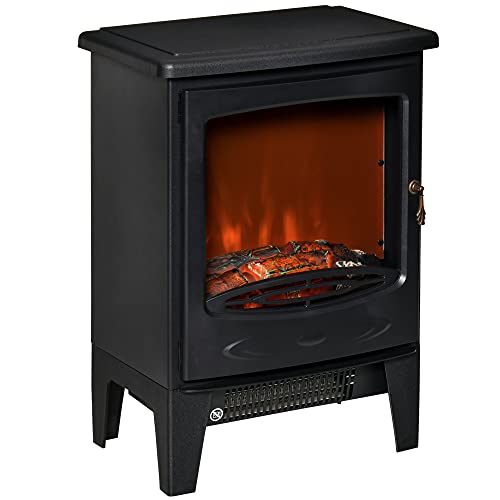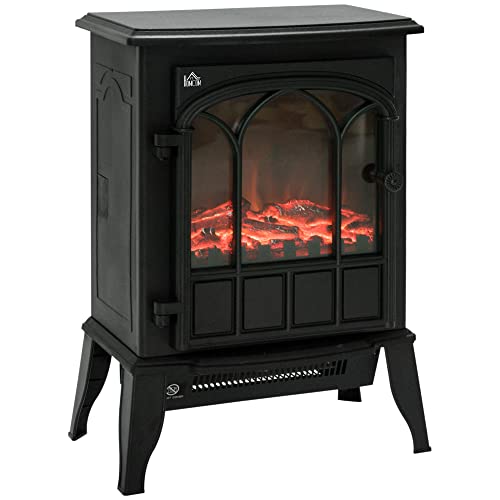The Little-Known Benefits Of Stoves Electric
페이지 정보
작성자 Brianna 댓글 0건 조회 4회 작성일 24-12-18 22:03필드값 출력
본문
 Why Stoves Electric Are the Green Choice
Why Stoves Electric Are the Green ChoiceA Brooklyn co-op has replaced 49 gas stoves, including radiant and induction models, with electric ones. The switch will save the co-op money and eliminate the costly gas line repairs and inspections required by Local Law 97.
 As opposed to gas stoves and stoves, electric stoves release no carbon dioxide or other harmful emissions when they are in use. The energy that powers your electric stove is generated by renewable sources like wind or solar.
As opposed to gas stoves and stoves, electric stoves release no carbon dioxide or other harmful emissions when they are in use. The energy that powers your electric stove is generated by renewable sources like wind or solar.They are safer
In the past many homeowners were concerned about replacing their gas stoves with an electric one. This fear stemmed from the hysteria created by politicians and pundits who claimed that government bureaucrats would take their gas stoves off their walls. Electricity has many advantages over gas. This includes a more sleek design and a lower price initially. Furthermore, they are easy to clean and energy-efficient.
According to consumer reports, gas stoves emit pollutants that can be harmful to human health. These pollutants can cause irritation to the airways and can trigger asthma, especially for children. These emissions contribute to outdoor pollution and greenhouse gases. Gas stoves are currently a source of concern and some local governments have banned their use in new construction. In turn increasing numbers of people are opting to install electric stoves in their homes.
Gas stoves can be more expensive to run than electric wood burning stove stoves since they require gas pipes and are not as energy efficient. They are also susceptible to breakdowns and require regular maintenance. On the other hand, electric stoves offer greater reliability and are efficient in energy use. They also have more precise temperature control and can run in power outages. They are also less difficult to clean than gas stoves as they do not have grates that could get clogged with food particles.
It is up to each homeowner to choose which stove to use in their home. It is important to remember that electric stoves are most popular. But, the choice should be based on individual preferences and their home's setup.
Electric stoves come in three varieties that include glass-top, coil-top as well as induction. The first two are similar in that they use 120 Volts of electricity to power the burners. However, induction stoves are different from conventional electric stoves because they use magnetic technology to heat the cookware, instead of using metal coils. Induction stoves are more expensive than coil stoves however they are also more efficient with energy.
They are more efficient
Switching from a gas to an electric log burners that look real stove has many benefits, including greater efficiency. Electric stoves are more expensive at first however they can save you money over the long term due to their lower running costs. They also have a smaller carbon footprint. This makes them a great choice for a green home.
The way stoves electric use energy is also more eco-friendly than gas stoves. Electric stoves make use of electricity produced by renewable sources, such as wind or solar power, while gas stoves use natural gas that can be obtained through Fracking. Electric stoves don't release the combustion byproducts from gas stoves.
The click, hiss, and the glow of the blue flame could remain appealing to many cooks. However, it has hidden costs for both humans and the environment. Numerous studies have proven that natural gas stoves are detrimental to the human body and environment. Top chefs like Tu David Phu have switched to electric stoves, and they have urged others to do the same.
In a gas-powered stove the energy that produces the blue flame is released into the atmosphere and contributes to the release of heat which cause climate change. The reason is because natural gas has to be extracted from the earth and methane is released into the air in the process. Methane leaks are also common at every step of the supply chain, from production to delivery.
When using a gas stove to cook food, the chemical combustion products that are produced by the natural gas are released into the air. These fine particles and gases can trigger asthma symptoms in children. These pollutants can cause irritation and can cause asthma-related symptoms, especially in children. The combustion of gas also creates nitrogen oxides which can cause respiratory problems and be toxic if inhaled.
electric fire stoves stoves, however are not releasing these chemicals into the atmosphere. Electric wood stove Heater stoves are powered by coal, however advances in solar and wind energy make this an environmentally sustainable option. Furthermore, a new generation of electric Log Burner stove cooktops are so efficient that they will not only reduce your household bills, but they will also reduce the environmental footprint.
They are less expensive
In general electric stoves are typically cheaper than gas ones. They are less expensive upfront and also have lower operating costs, due to their power transfer technology. They are also able to be used in power outages. They are also much safer to use, as they operate with heated coils or burners instead of open flames. This feature is especially helpful for families with children who may be enticed by the temptation to fiddle with knobs and put their hands in hot places.
Another benefit of electric stoves is that it's much easier to clean. Instead of multiple grates they have a single, smooth surface that's easy to wipe down. Furthermore, you can monitor the heat using a dial so that you know precisely how hot to cook. This can be a problem because it could take time to adjust to the amount of heat.
It's also important to note that gas stoves emit pollutants into the air that can be harmful to health. The gas industry claims these emissions aren't harmful however, federal agencies are examining stronger regulations to reduce their impact on climate change and indoor air quality. These possible changes could lead to a ban on gas stoves in the near future.
Finally, there's the fact that gas stoves require a gas line to operate, which a lot of homeowners don't have. It is possible to put in one new however this could be time-consuming and costly. Meanwhile, electric stoves only need a power outlet, which most homes already have. They are a great option for older homes as well as those with a tighter budget.
Many people are also eligible for rebates on stoves, which are energy-efficient. This program is part of IRA's High-Efficiency Electric Home Rebate. It is not yet launched, but will be accessible in the majority of states by the close of the year. These rebates make switching to electric cooktops more affordable for a lot of people. Additionally electric stoves are more expensive than gas stoves in the long run, and they can aid in reducing the cost of energy for households.
The products are eco-friendly.
In terms of reducing carbon emissions, electric stoves are the best electric stove fire option. Gas stoves release harmful toxins like carbon monoxide, nitrogen dioxide, and benzene which are linked to health issues including dizziness, nausea, headaches, confusion and breathing difficulties. Moreover, they can also cause indoor air pollution which has been proven to be a factor in a higher rate of asthma in children.
Thankfully, these issues are driving gas stoves out of homes in favor of more efficient electric cooktops. Electric ranges are not just cheaper to run than gas stoves but also better for the planet. Electric stoves are more eco-friendly than gas stoves. They can be powered by renewable energy sources, as opposed to gas stoves that are powered by natural gas. This makes them a green choice for any home.
Another benefit of an electric stove is its safety. Since they don't employ an open flame, they are more secure than gas stoves, and don't generate more smoke. Plus, they can cook larger items such as stockpots more quickly and efficiently than gas stoves. Electric stove coils cool down quicker than the gas stove. This ensures that pots and pans do not ignite, which is important for families with children or elderly residents.
It is important to think about the impact on the environment when you choose an electric stove. Although it's true that the energy that powers an electric stove comes from fossil fuels but this isn't as harmful as it may sound. It's actually a safer form of energy than oil or coal. Furthermore, the electricity you get to power your stove could be generated by wind or solar energy which are both renewable forms of energy.
Many cities have banned gas hookups for new buildings, even though the government doesn't have any regulations for the indoor air pollution emitted by gas stoves. The government is also offering billions of dollars in rebates to help consumers to switch to electric stoves. Electric stoves are now cheaper and well-known thanks to these incentives, along with improved green technology.



